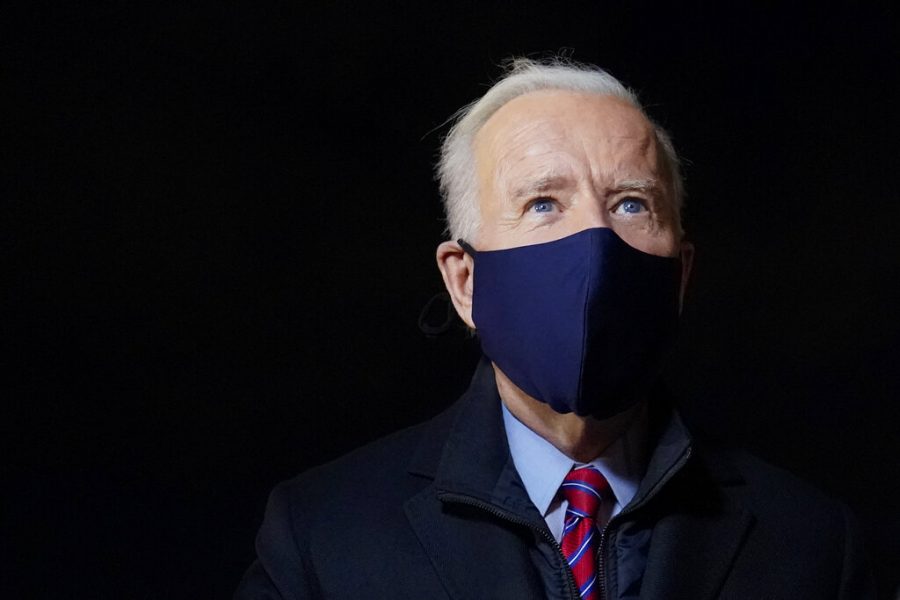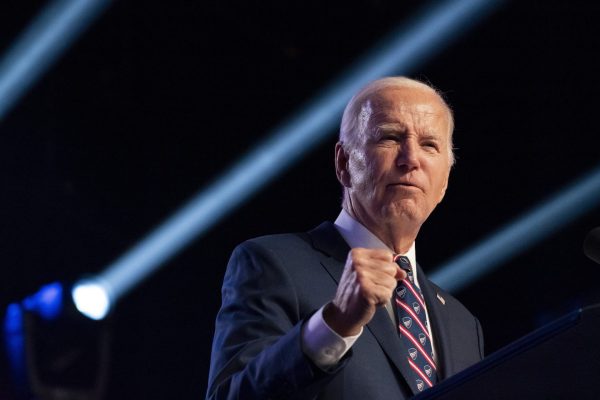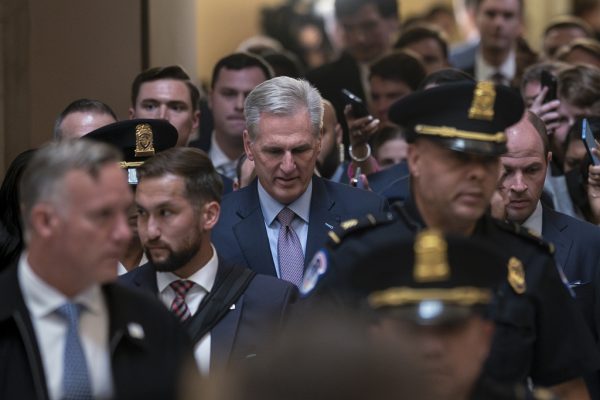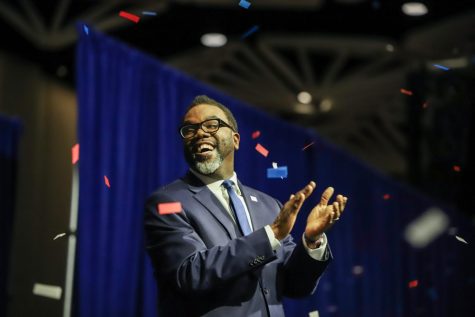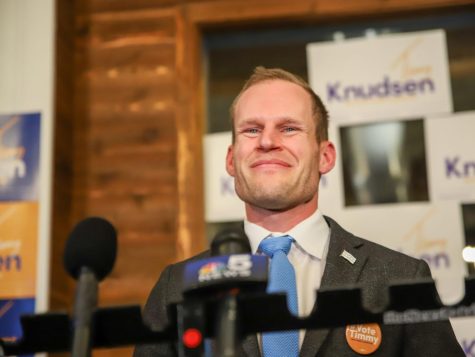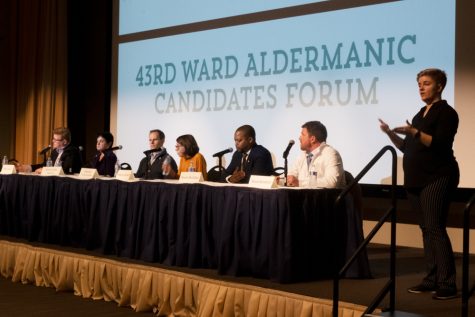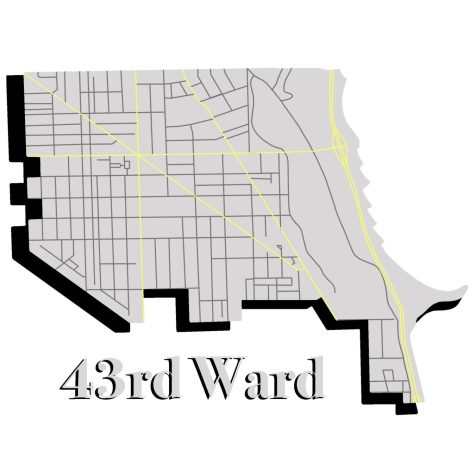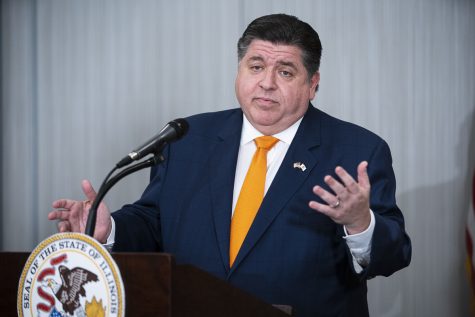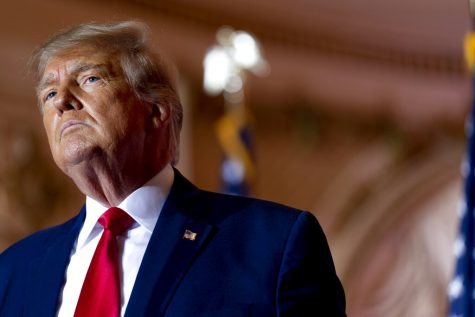Biden’s executive orders lay a foundation for racial equity
President Joe Biden speaks with reporters after stepping off Air Force One at New Castle Airport in New Castle, Del., Friday, Feb. 5, 2021. Biden is spending the weekend at his home in Delaware. (AP Photo/Patrick Semansky)
President Joe Biden signed four executive orders to promote racial equity in his first two weeks in office.
The orders included reaffirming tribal sovereignty, ending federal funding in private prisons, condemning discrmination against Asian Americans and Pacific Islanders and ending discrimination in federal housing policy.
“I think they’re a good start,” said College Democrats of Illinois President Daniel Green. “I was most interested in the executive order that the Federal through the Department of Justice is using private prisons because that’s a really important step. The idea that no one should make a profit off of incarceration is really important to racial justice and obviously I don’t think it goes far enough, but it’s a really good start.”
Biden has spoken out against racism, saying he will create a mandate “to achieve racial justice and root out systemic racism in this country,” according to the Washington Post.
“One of the biggest diseases that still plagues the country is white supremacy,” said Adora Alava, Student Government Association senator for community and government relations. “These executive orders will only fulfill [their] purpose if consistent action is being done in response to the people’s efforts in building the conversations and mapping out the issues and sources of power, like reconstructing the racist institutions that govern our America today.”
Alava said she believes Biden’s orders address how the federal government has played a role in disproportionately affecting people of color through federal housing policy and private prisons.
“Ending private prisons — or not having them renewed, as Biden’s order addresses — could prevent recidivism rates from increasing, as high recidivism rates are linked to private prisons,” she said.
DePaul sophomore Victoria Bush also said she believes that ending federal funding in private prisons will uplift people of color who are targeted.
“Private prisons often strip these people of their humanity and are seen as people to profit from,” Bush said. “By ending private prisons, I hope that we will see people that are incarcerated gain some of their dignity back.”
Green also said that although the results of ending federal funding won’t be direct, the “ idea that we’re shifting away from the model where people are motivated to incarcerate people by profit and other means, shifting like that is a good step in that direction.”
However, Green said he believes that executive orders can only go so far in promoting racial equity.
“The federal government is starting to do, you know, a small part of their part in addressing it, but there’s only so much the president can do through executive order,” he said. “I’m not sure how much the federal government can do through executive order to promote racial equality.”
Despite the limitations of executive orders, Biden is taking a different approach to addressing the systemic issues in government that affect people of color from his predecessor Donald Trump.
Alava said she believes that Trump played a role in fueling hate towards some groups, such as Asian Americans and Pacific Islanders.
“The former President Donald Trump has spewed out so much slander amongst the Asian community, as his most heavily-noted attack — referring to the Covid-19 pandemic as the ‘Chinese Virus’ multiple times throughout his public conversations or speeches — has been a major issue Asian Americans and Pacific Islanders have had to deal with,” Alava said.
Green also believes that Biden is making more of an effort to address systemic racism.
“100 percent, I’ve been pleasantly surprised by how much the Biden administration has done their executive order in the first couple of weeks,” he said.
Along with Biden, Senators Tammy Duckworth and Dick Durbin also have power to make progressive change in the Senate and in Illinois.
“I want to make sure we’re watching the Biden administration, including Senators Durbin and Duckworth, [and] make sure that they are also fighting for larger scale, systematic transformations in the Senate,” Green said.
The Biden administration’s recent orders could prioritize civil rights issues and racism in the U.S., according to Alava.
“Hopefully, these executive orders promoting racial equity move civil rights justice to the forefront of the conversation and move us away from a colorblind approach on racial equity issues,” she said.


